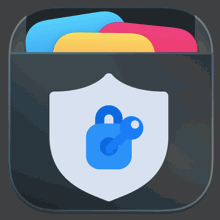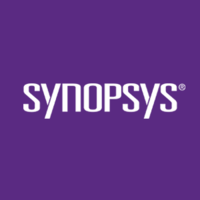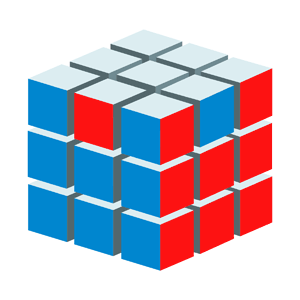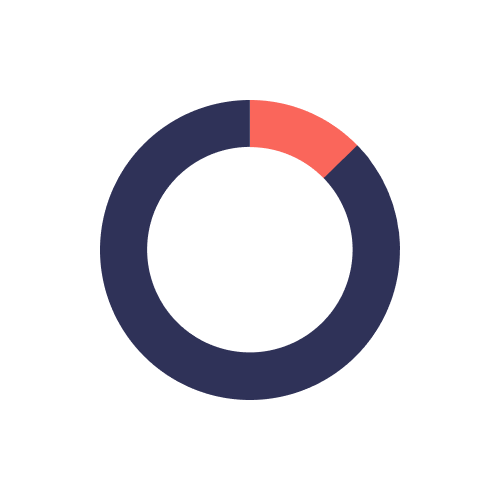Description

Easy App Locker

Synopsys
Comprehensive Overview: Easy App Locker vs Synopsys
Easy App Locker and Synopsys are distinct entities and products, so it seems like there might be a mix-up. I'll provide an overview separately as much as each is publicly known as of the last update in October 2023:
Easy App Locker
a) Primary Functions and Target Markets
Primary Functions:
- Security: Easy App Locker is primarily designed to protect private apps and data on mobile devices.
- App Locking: It allows users to lock individual applications using passwords, PINs, patterns, or biometric authentication.
- Privacy: It supports features like hiding notifications, preventing unauthorized access to personal apps, and more.
- Customization: Users can customize lock screens and settings according to their preferences.
Target Markets:
- Individual Users: It is primarily aimed at consumers who need to secure their personal information on mobile devices.
- Small Businesses: Small enterprises that require simple app security solutions on company-owned devices.
- Families: For parental controls or shared devices within families to restrict specific app access.
b) Market Share and User Base
As of the latest data available, Easy App Locker tends to operate in a niche market focused on personal mobile security, meaning its precise market share or user base numbers are typically smaller compared to large, integrated cybersecurity solutions. Calculating specific data for such applications can be challenging due to the wide variety of similar apps available.
c) Key Differentiating Factors
- User-Friendly: Typically more user-friendly with straightforward installation and management focused on mobile applications.
- Cost-Effective: Often free or low-cost compared to comprehensive cybersecurity suites.
- Lightweight: Minimal system resource usage, making it a good option for older devices.
Synopsys
a) Primary Functions and Target Markets
Primary Functions:
- Software Integrity: Synopsys provides comprehensive software security and quality solutions.
- Testing Tools: Offers static analysis, software composition analysis, and dynamic application security testing.
- Compliance: Helps organizations meet regulatory and licensing compliance.
- Risk Management: Provides tools for identifying and mitigating risks in software supply chains.
Target Markets:
- Enterprises: Medium to large businesses that require integrated security testing and compliance tools.
- Developers: Software development teams needing robust testing solutions during the development lifecycle.
- Industries: Focus on industries with high compliance and security needs, such as finance, healthcare, and government sectors.
b) Market Share and User Base
Synopsys is a leading player in the software integrity and application security testing market. It has a significant market share, particularly among enterprise customers. With a large user base across various industries, Synopsys is recognized globally for its contributions to software security.
c) Key Differentiating Factors
- Comprehensive Solutions: Offers a broader range of tools that integrate software security and quality within development workflows.
- Enterprise-Grade: Provides scalable solutions for large organizations that require extensive security and compliance measures.
- Industry Expertise: Strong reputation and experience in dealing with complex industry requirements and standards.
These descriptions highlight the fundamental differences between Easy App Locker and Synopsys, showing that they cater to different market needs and scales of operation.
Contact Info

Year founded :
Not Available
Not Available
Not Available
Not Available
Not Available

Year founded :
Not Available
Not Available
Not Available
Not Available
Not Available
Feature Similarity Breakdown: Easy App Locker, Synopsys
To provide a feature similarity breakdown between Easy App Locker and Synopsys, I'll focus on the general capabilities and differences that products within these categories typically exhibit, as specific proprietary details about Synopsys’ products are not readily available.
a) Core Features in Common
Both Easy App Locker and application security products from Synopsys typically share some core features, as they are related to software security:
-
Access Control:
- Easy App Locker is designed to restrict access to applications, ensuring only authorized users can access certain apps on their devices.
- Synopsys products often include access controls within their application security frameworks to manage permissions and protect sensitive data.
-
User Authentication:
- Both solutions generally have authentication mechanisms to verify user identity before granting access to apps or system functionalities.
-
Security Alerts and Logging:
- Easy App Locker may provide alerts and logging of attempts to access locked apps, helping in identifying unauthorized access attempts.
- Synopsys provides detailed logging and monitoring features to track and alert on security vulnerabilities or breaches.
b) User Interface Comparison
Easy App Locker:
- Typically features a straightforward, user-friendly interface aimed at end-users managing app access on mobile devices.
- Simplicity is key, with easy-to-navigate menus for setting application locks and permissions quickly.
Synopsys:
- Tends to have complex interfaces designed for developers, security analysts, or IT professionals working within enterprise environments.
- The interface often includes detailed dashboards, analytics, and comprehensive setting options to fine-tune security protocols and integrations with DevOps workflows.
c) Unique Features
Easy App Locker:
- Device Compatibility: Primarily focuses on mobile devices, providing ease of use for locking individual apps directly from the device.
- Usability Features: Often includes features like pattern, PIN, or fingerprint unlock to provide quick access while maintaining security.
Synopsys:
- Code Analysis: Offers static and dynamic application security testing (SAST/DAST) options, focusing on identifying vulnerabilities in the code rather than solely access restrictions.
- Integration with Development Pipelines: Integrates with CI/CD pipelines to offer continuous security testing throughout the software development lifecycle.
- Vulnerability Management: Provides comprehensive tools for tracking and managing vulnerabilities, often with remediation guidance and policy enforcement features.
In summary, while Easy App Locker focuses on straightforward app access control and security for individual users or small teams, Synopsys offers a more extensive suite of application security solutions suitable for enterprise use. This includes development-focused features for vulnerability detection, management, and integration into broader security infrastructures.
Features

Customization Options
Security Features
Performance
User-Friendly Interface

Security and Compliance
Development and Testing Tools
Software Quality and Performance
Best Fit Use Cases: Easy App Locker, Synopsys
Easy App Locker and Synopsys each serve distinct purposes and cater to different needs within the realm of application and systems security. Here's a breakdown of their use cases and how they fit into various industry verticals and company sizes:
Easy App Locker
a) Best Fit Use Cases
- Small to Medium-Sized Businesses (SMBs): Easy App Locker is typically ideal for small to medium-sized businesses looking for an efficient and straightforward solution to secure their applications without extensive resources or a dedicated IT team.
- Startups: Startups that need to quickly secure applications to protect intellectual property or customer data often find Easy App Locker to be a cost-effective and fast solution.
- Consumer-Facing Apps: Companies focusing on consumer-facing mobile or web applications, where quick deployment and ease of use are crucial, benefit significantly from Easy App Locker.
- Non-Technical Teams: Businesses with limited technical expertise in security may lean toward Easy App Locker due to its user-friendly interface and simplicity.
Synopsys
b) Preferred Scenarios
- Large Enterprises: Synopsys is more suited for large enterprises that require a comprehensive security solution integrated into the software development lifecycle for proactive vulnerability detection and management.
- Regulatory Compliance: Companies operating in industries with stringent regulatory requirements (e.g., finance, healthcare, government) often prefer Synopsys for its robust compliance features and reporting capabilities.
- Development-Centric Organizations: Organizations with large development teams looking to integrate security into their DevOps processes benefit from the extensive tools and integrations offered by Synopsys.
- Advanced Security Needs: Businesses dealing with highly sensitive data or that have complex security requirements can leverage the deep functionality of Synopsys's suite of security tools.
Differentiation by Industry Verticals or Company Sizes
Easy App Locker
- Industry Verticals: This tool can appeal to industries such as e-commerce, mobile applications, and education technology where user simplicity and deployment speed are top priorities.
- Company Sizes: Primarily targeted at small to medium businesses that prioritize ease of deployment and require basic security features without embedded development support.
Synopsys
- Industry Verticals: Serves verticals like financial services, healthcare, and telecommunications that demand rigorous security measures and detailed compliance tracking.
- Company Sizes: Aligned with the needs of medium to large enterprises that have the infrastructure to support comprehensive application security testing and need to protect large volumes of sensitive data across multiple applications and services.
In summary, the choice between Easy App Locker and Synopsys largely depends on the complexity of the security needs, the size of the business, and the industry-specific requirements. Easy App Locker provides a quick and straightforward solution for smaller entities, while Synopsys offers an expansive suite of tools for enterprises needing deep integration and comprehensive security coverage.
Pricing

Pricing Not Available

Pricing Not Available
Metrics History
Metrics History
Comparing undefined across companies
Conclusion & Final Verdict: Easy App Locker vs Synopsys
To provide a conclusion and final verdict for Easy App Locker and Synopsys, we need to evaluate their overall value, pros and cons, and offer specific recommendations for users deciding between the two.
Conclusion and Final Verdict
Overall Value
Considering all factors such as cost, ease of use, feature set, and support, Synopsys generally offers the best overall value for organizations where security, integration, and scalability are primary concerns. However, Easy App Locker may present better value for smaller businesses or individual users who need a straightforward solution for app locking without extensive features or complex integration requirements.
Pros and Cons
Easy App Locker
-
Pros:
- User-friendly interface suitable for individuals and small businesses.
- Quick setup with minimal configuration.
- Affordable pricing, making it accessible for smaller budgets.
- Efficient for basic security needs like locking apps and applying screen-time limits.
-
Cons:
- Limited advanced security features compared to full-fledged security platforms.
- Not suitable for larger enterprises requiring complex integration or compliance with rigorous security standards.
- Lack of advanced monitoring and reporting tools.
Synopsys
-
Pros:
- Comprehensive security suite that handles a wide range of security needs, from application security testing to ensuring compliance.
- Scalable solutions that cater to small startups as well as large enterprises.
- Strong support and a wealth of resources for installation and management.
- Advanced reporting and analytics for monitoring and improving security posture.
-
Cons:
- Can be expensive, especially for small or medium-sized businesses.
- Potentially complex setup and integration process that might require dedicated IT staff.
- May offer more features than necessary for basic needs, leading to underutilization in non-enterprise settings.
Recommendations
For users deciding between these two options, the choice largely depends on their specific needs:
-
Small Business or Individual Users: If your primary goal is to secure apps on personal devices or within a small business environment with minimal complexity, Easy App Locker is more suited to your requirements. Its simplicity and low cost make it a viable option for basic security needs without heavy feature demands.
-
Enterprises and Larger Organizations: If your organization requires a robust security infrastructure with capabilities like application security testing, compliance assurance, and extensive reporting, Synopsys is the recommended choice. Its ability to integrate with existing systems and handle a variety of security tasks makes it more suited for larger setups.
Ultimately, users should assess their specific security needs, budget constraints, and existing infrastructure to make the most informed decision. If in doubt, a trial or consultation can provide additional insights tailored to each organization's unique situation.
Add to compare
Add similar companies



